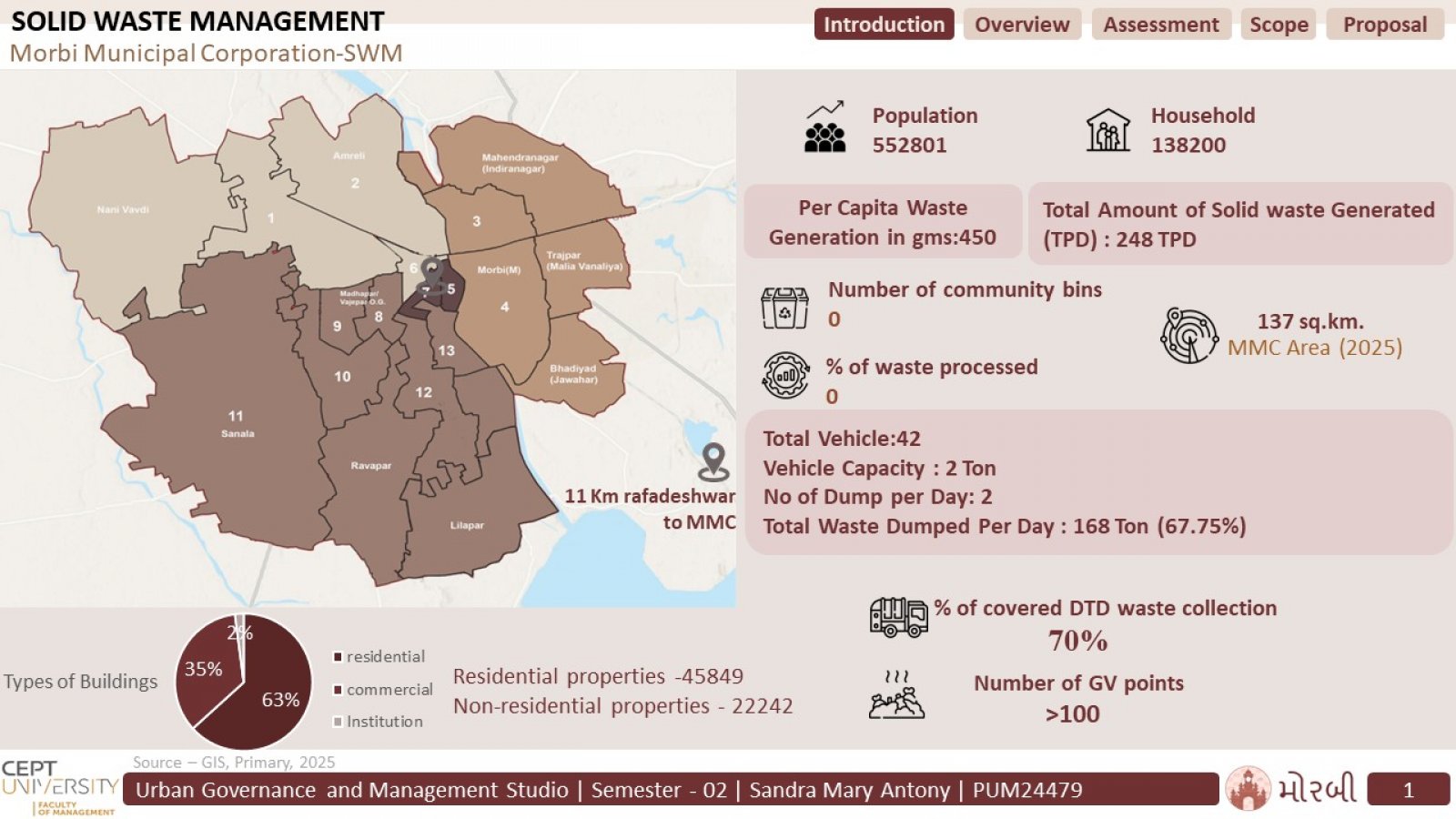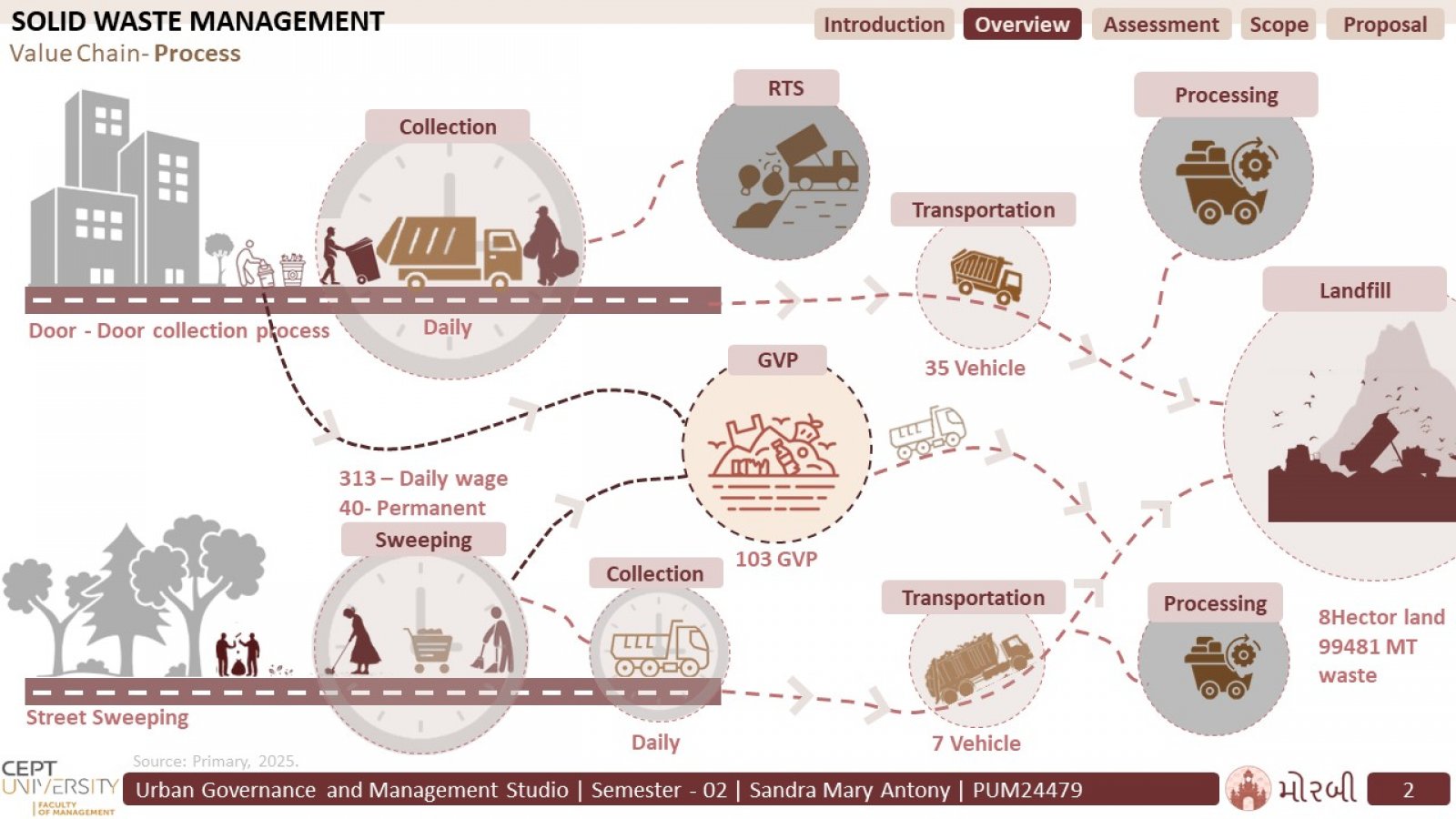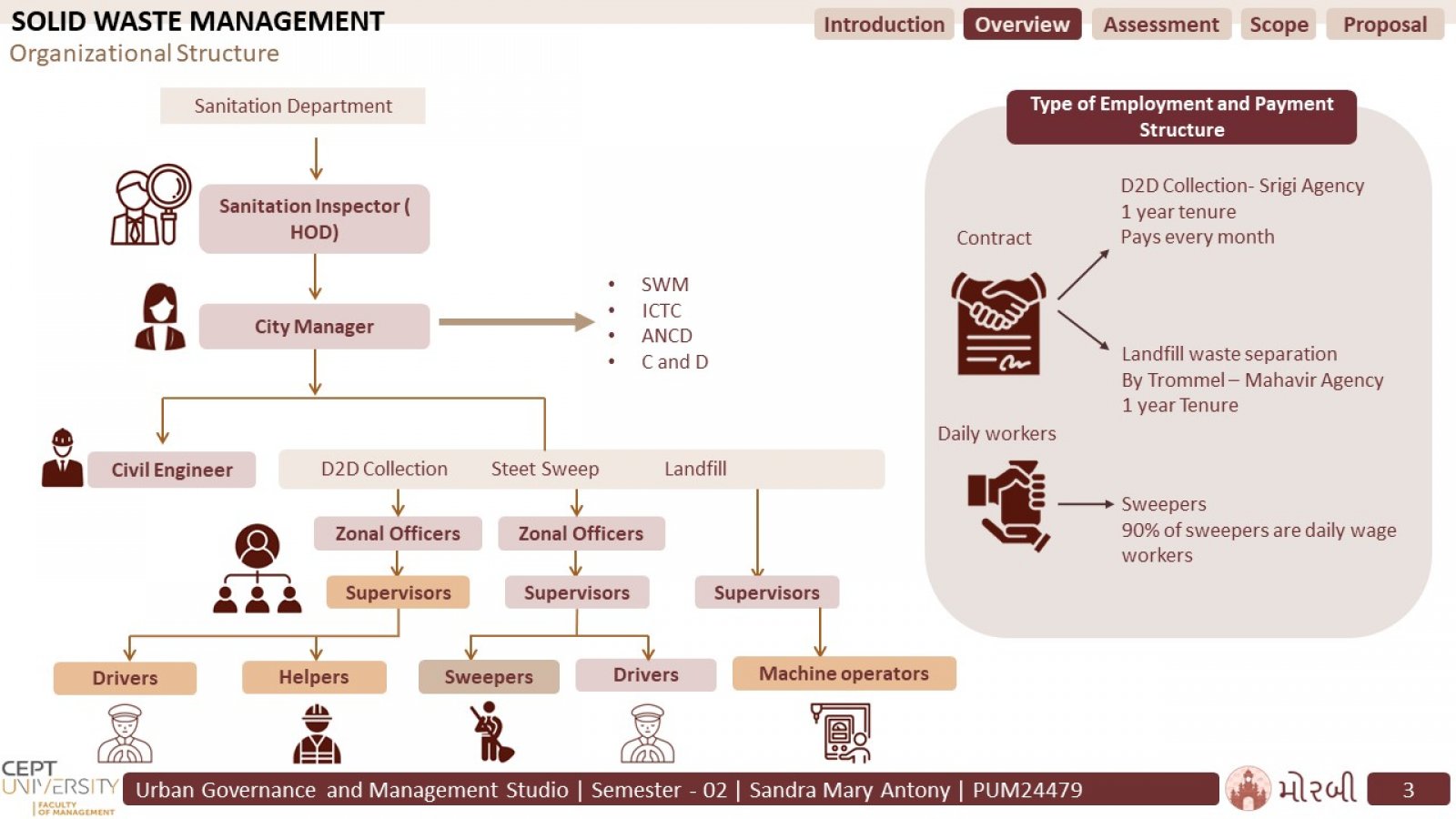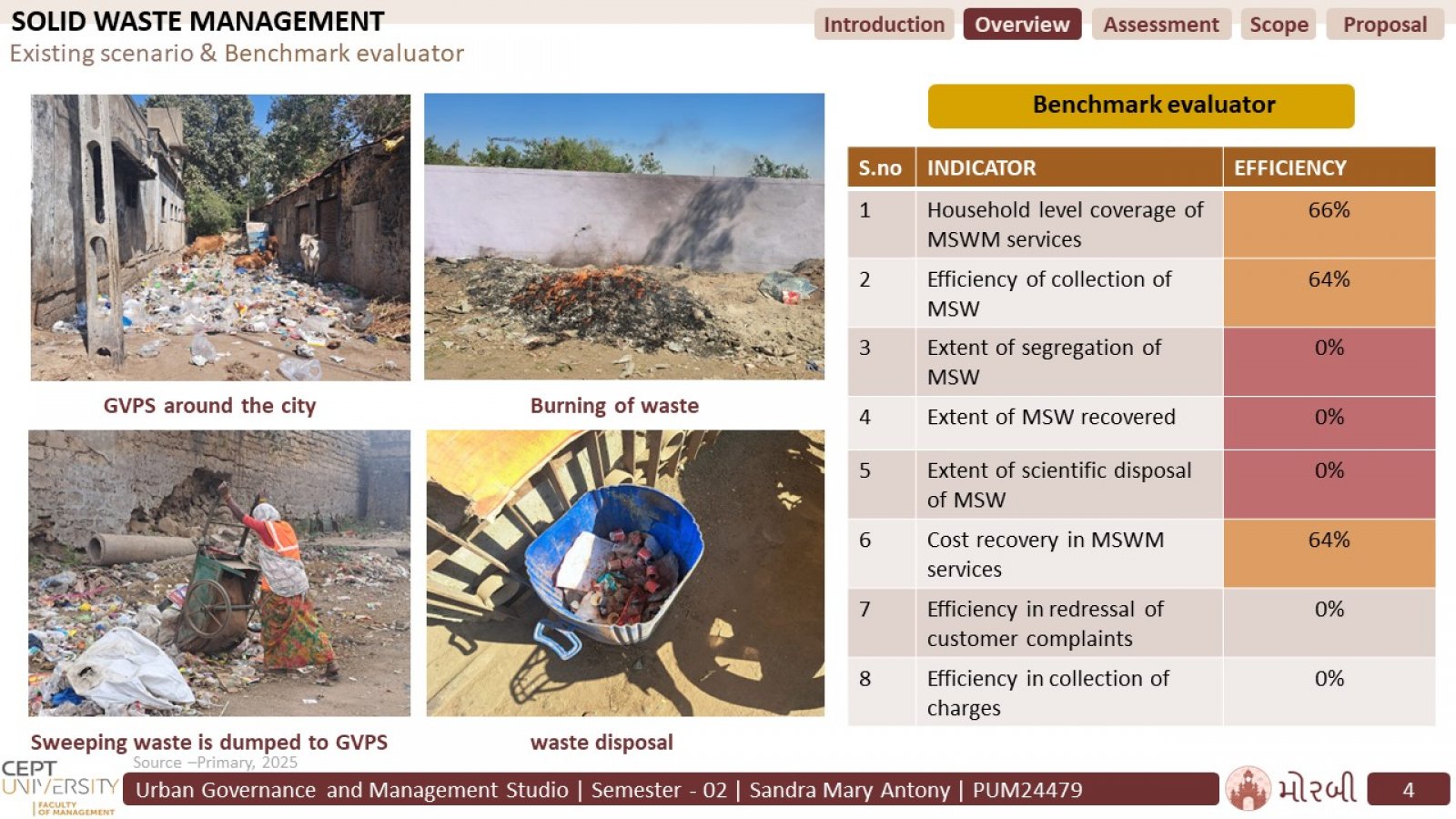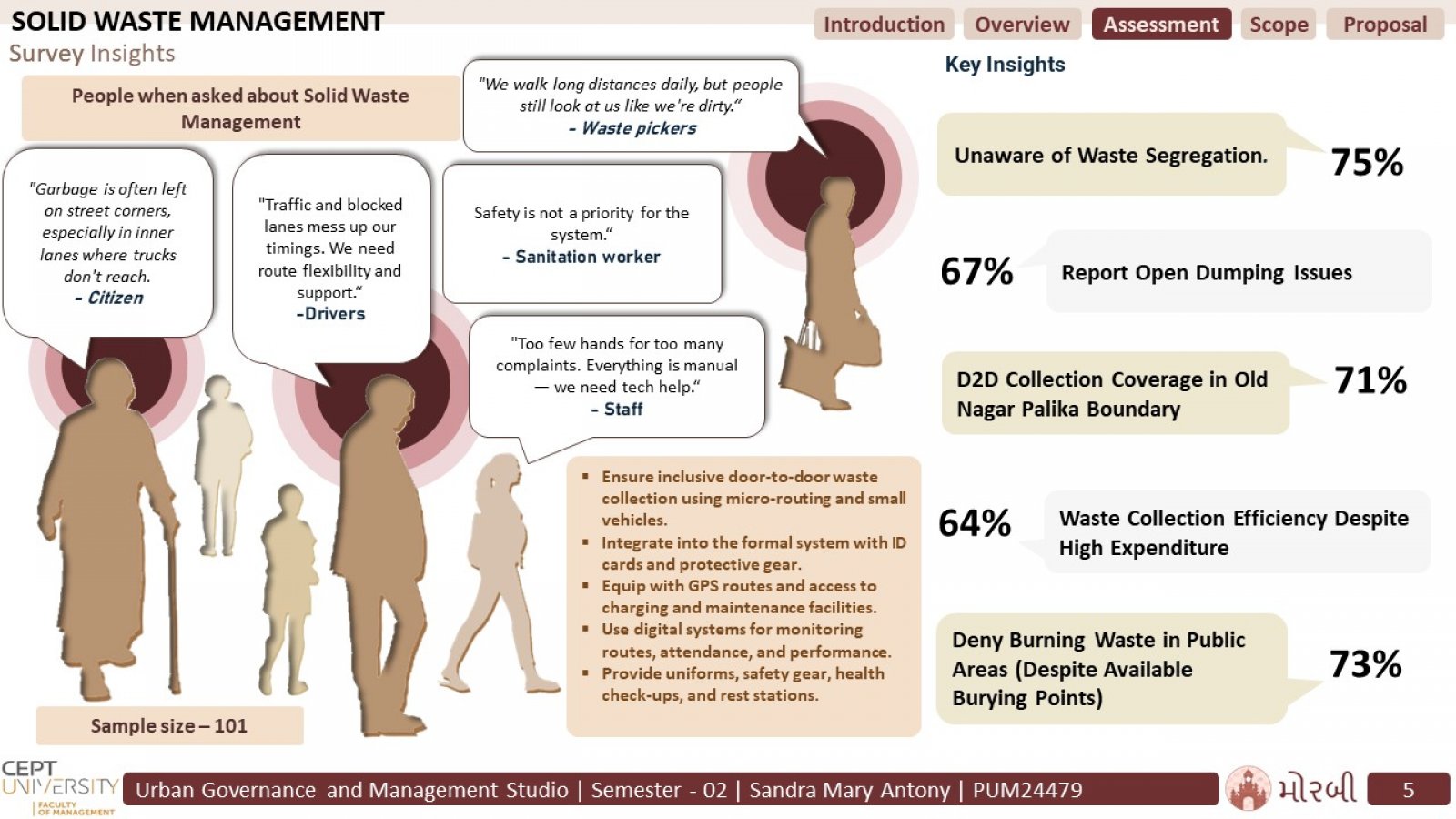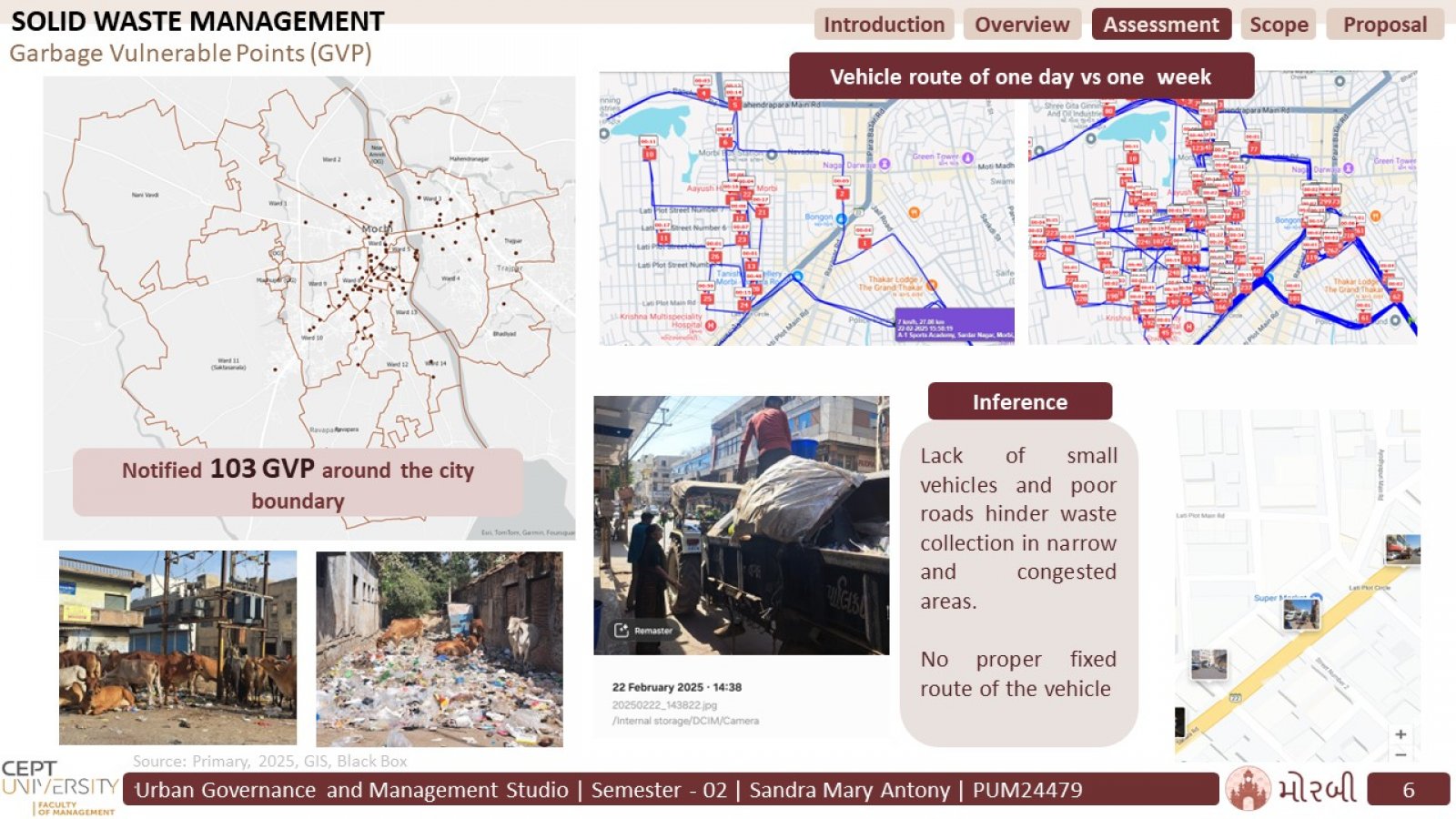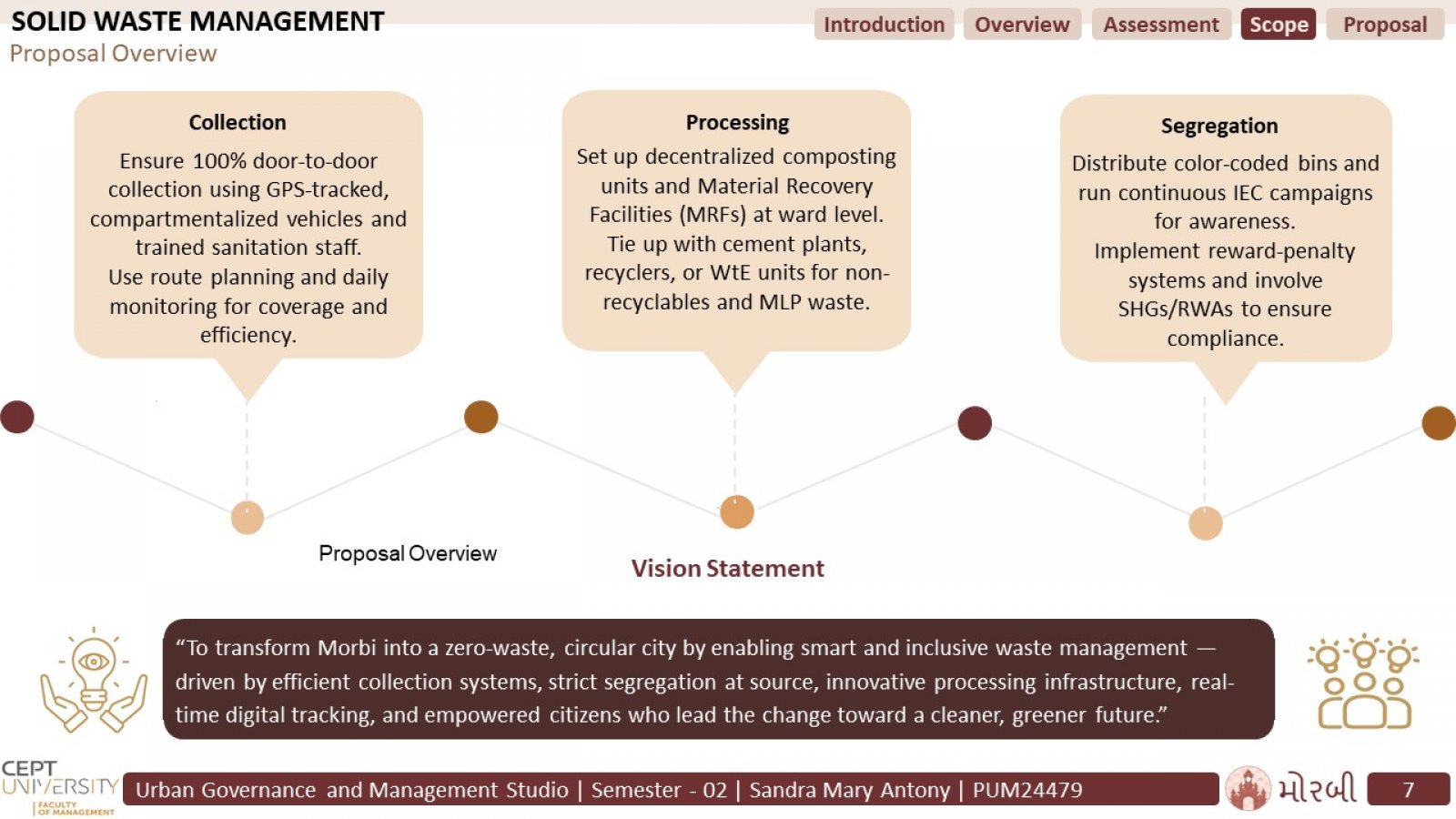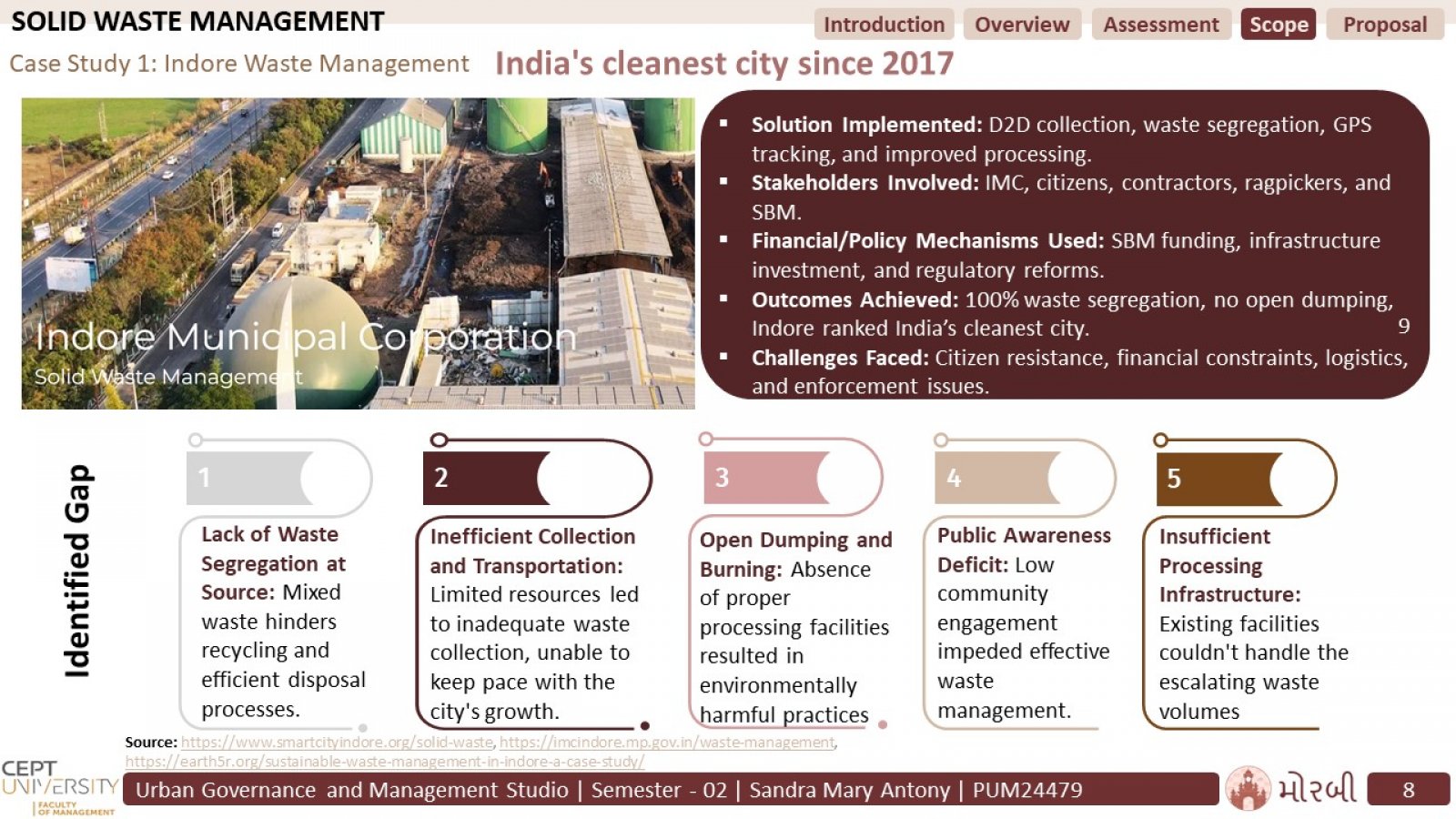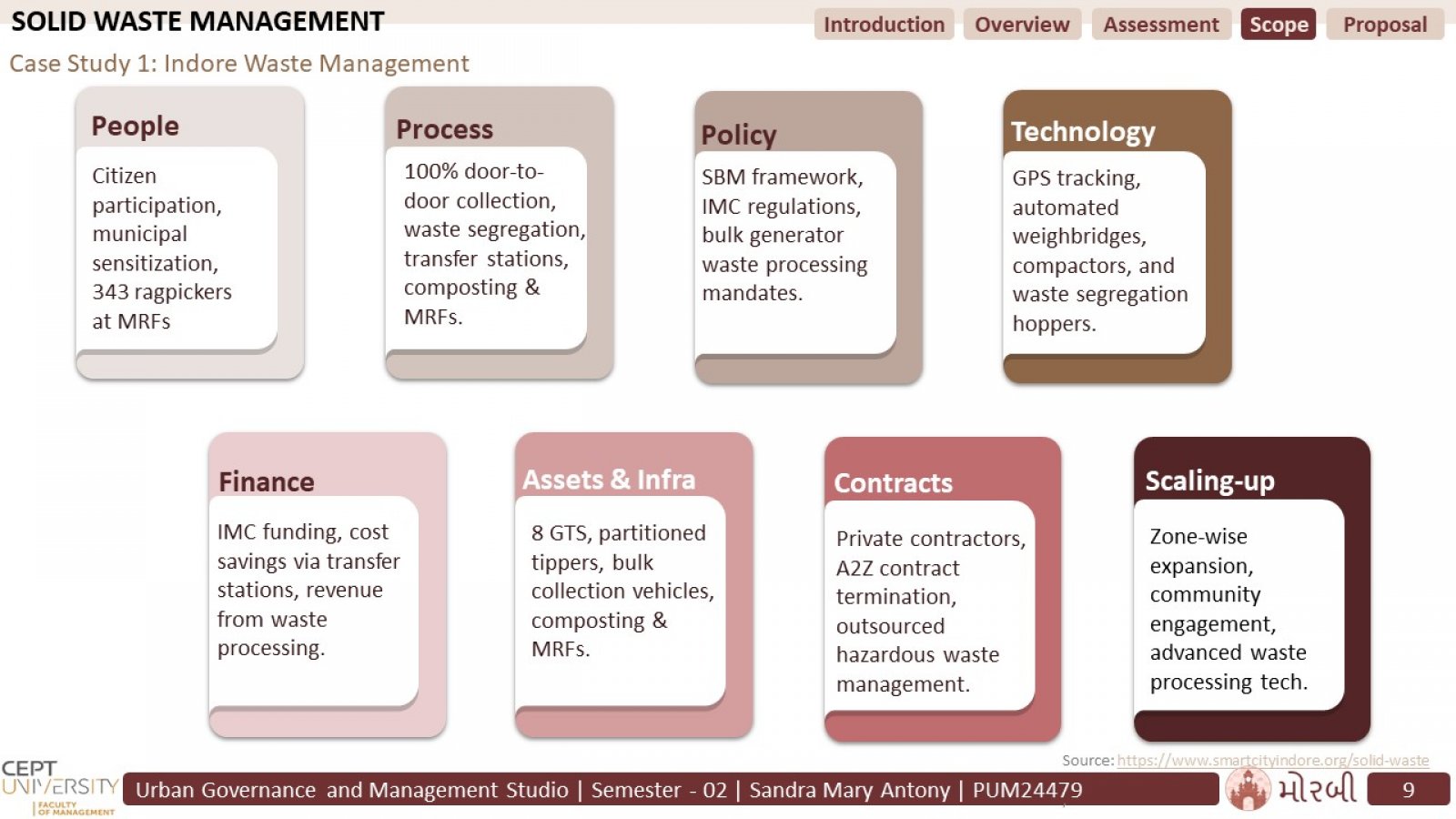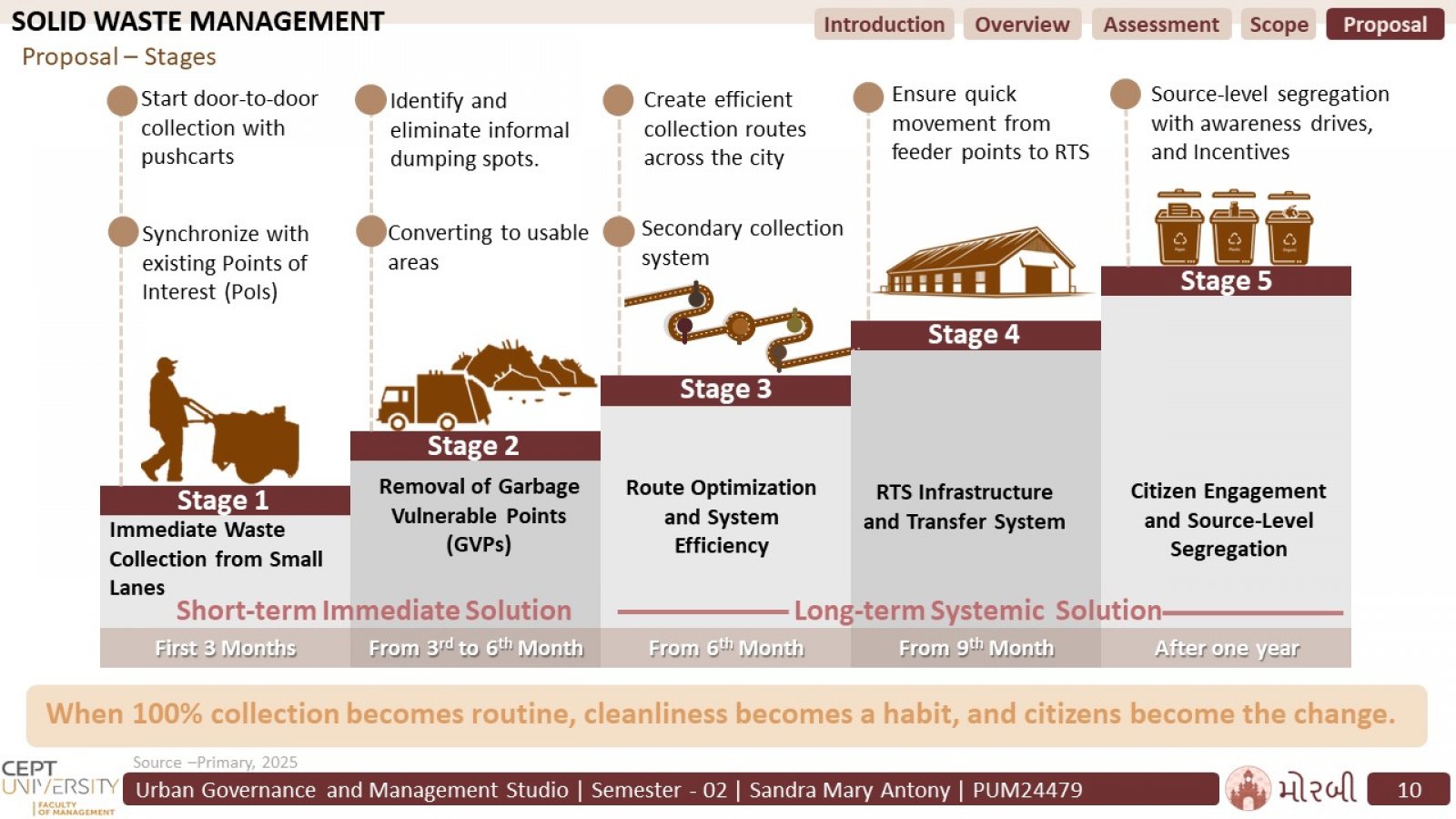Your browser is out-of-date!
For a richer surfing experience on our website, please update your browser. Update my browser now!
For a richer surfing experience on our website, please update your browser. Update my browser now!
As part of our Urban Governance and Management studio, this project on Solid Waste Management in Morbi aims to identify operational inefficiencies and propose a comprehensive, phased strategy to strengthen the city's waste collection and processing systems. Focusing on challenges such as inadequate primary collection in narrow lanes, fragmented coordination, and lack of integration with informal waste pickers, the project follows a three-stage approach: improving primary collection through customized vehicles and inclusion of pushcart waste collectors, establishing feeder points and efficient transfer systems to RTS facilities, and streamlining secondary transportation and processing. Emphasizing financial viability, institutional reform, and technological integration, the project envisions a scalable, environmentally sustainable, and citizen-responsive waste management framework for Morbi.
